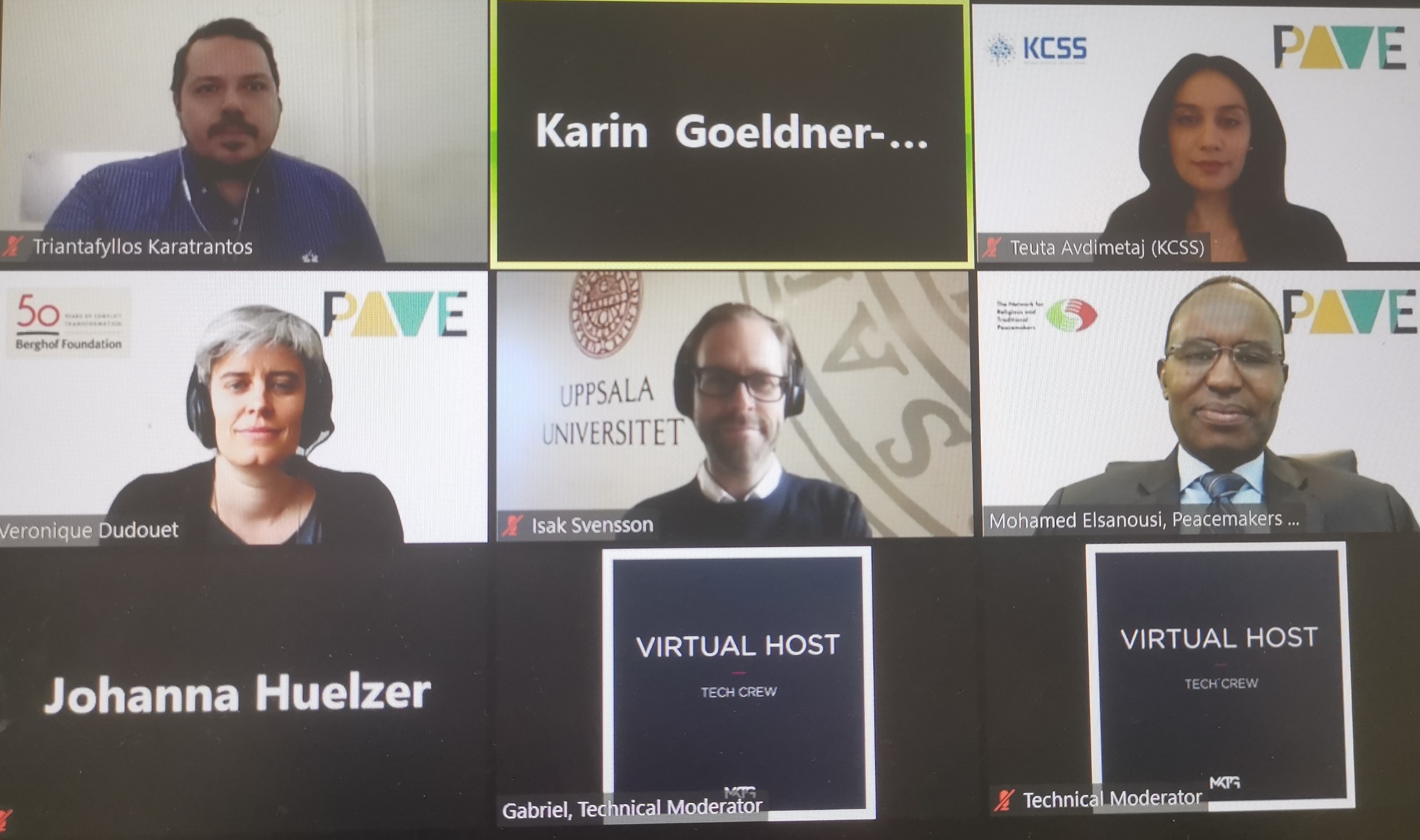PAVE at the Stockholm Forum for Peace and Development 2021
On 7th May 2021, the PAVE project organised an open roundtable discussion titled “Terror Acts: From Transnational radicalisation to local resilience” in the context of the Stockholm Forum on Peace and Development. The event aimed to foster an exchange between researchers and practitioners on (online and offline) drivers of local resilience in the face of transnational patterns of radicalisation and reciprocal extremism, with a particular focus on the Western Balkans and the Middle East and North Africa (MENA). As the field research of the PAVE project has only recently started, the session was not intended to present findings from the project but rather exchange impressions and experiences from previous research and practice to elicit a conversation on the topic.
Moderated by Dr. Véronique Dudouet (Berghof Foundation), the conversation evolved around four main questions: 1) How do terror attacks in Europe reverberate across societies, and what is their impact on transnational dynamics in the European neighbourhood? 2) How do ethno-political and religious manifestations of reciprocal extremisms impact jihadist violence trajectories? 3) How can local religious leaders best react to heinous extremist attacks and their transnational reverberations, by mitigating local polarising dynamics while strengthening resilience in their communities? 4) What roles can women and youth play in building resilience – both offline and online?
These questions were addressed by PAVE team members Dr. Triantafyllos Karatrantos (The Hellenic Foundation for European and Foreign Policy, ELIAMEP), Dr. Isak Svensson (Uppsala University, UU), Dr. Mohamed Elsanousi (Network for Religious and Traditional Peacemakers) and Teuta Avdimetaj (Kosovar Center for Security Studies, KCSS), who shared their insights based on previous research. The different perspectives of the panellists fruitfully complemented each other to create a nuanced picture on transnational radicalisation dynamics and connected factors for local resilience to violent extremism. Additionally, interesting questions from the audience on impact assessment of PVE projects and the possibility for reciprocal de-radicalisation were received and discussed. Some of the main take-aways from the event are listed below:
- Transnational reverberations of terror acts and reactions to these are relevant in radicalisation trajectories. In order to be effective, prevention –, de-radicalisation –, as well as research projects in the field of violent extremism need to take these dynamics into account.
- Diaspora communities play a role in transnational (de-)radicalisation dynamics. Further research is needed in order to assess their role and delineate their contribution to building resilience against violent extremism in communities in the Western Balkans and MENA regions.
- Communities, and especially religious actors, women and youth dispose over a range of non-violent tools to resist and counter radicalising influences from the outside. Capacities of these actors need to be strengthened in order to allow them to enact these tools.
The insights from the roundtable discussion have enriched subsequent conversations within the PAVE project. Thus, the PAVE team very much looks forward to continue its engagement with external researchers and practitioners in the context of its upcoming conference contributions, such as at the Conflict Research Society Conference in September 2021. The full video recording of the roundtable at the SIPRI Forum 2021 can be re-watched here

